Pyrite
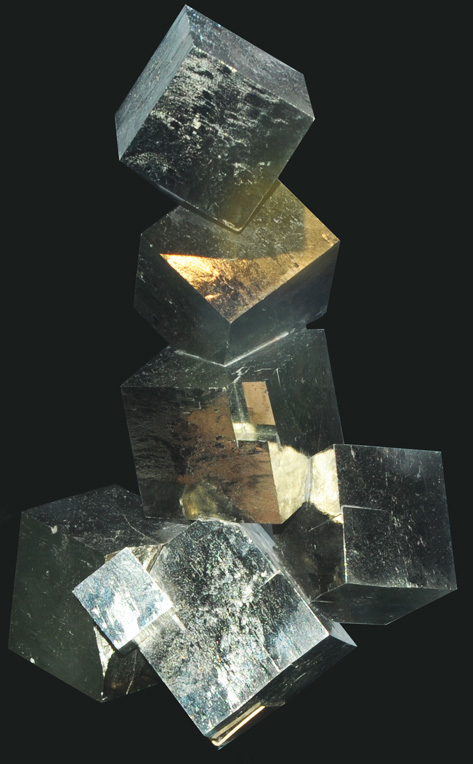
| Fe2SPyrite is Fe2S, an important example of a sulfide mineral. Often known as "fool's gold", it has a shiny metallic gold color. All the samples shown here are on display in the Smithsonican Museum of Natural History. This sample has a maximum width of about 15 cm and is from Navajun, La Rioja, Spain. It is a completely natural formation that shows extraordinarily precise cubic structure. This cubic geometery mirrors the internal cubic arrangement of the iron and sulfur atoms. 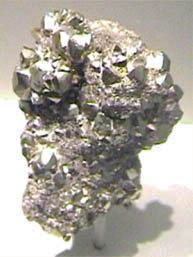 This sample is about 5 cm wide and is from Potosi', Brazil. |
 |
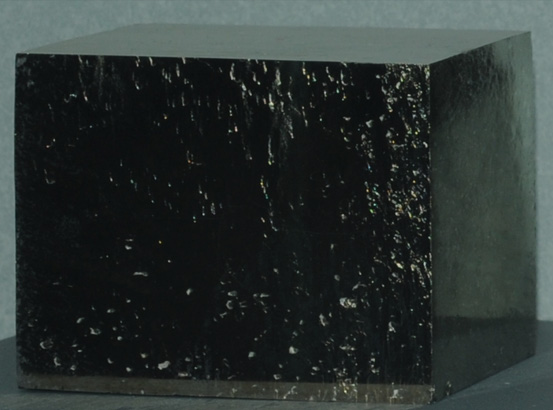 |
The pyrite samples at right are from Amax mine, Boss, Missouri. The tallest column is about 25 cm high. 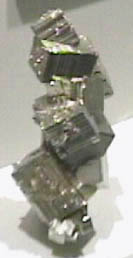 This sample is about 15cm high. |
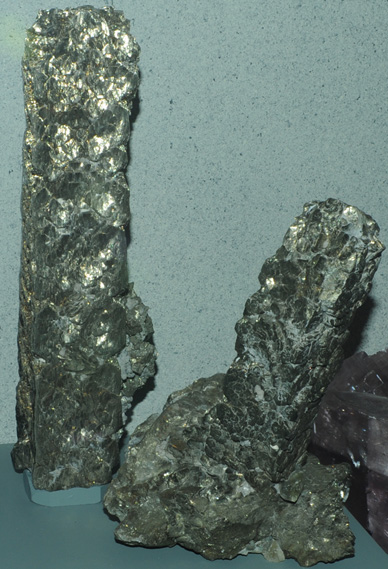 |
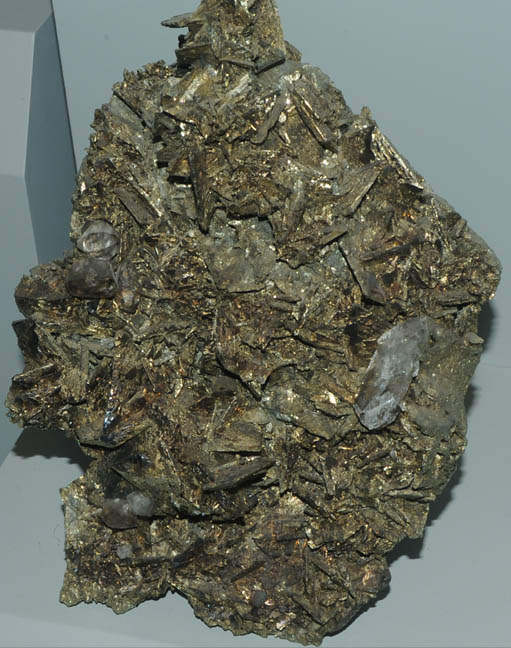 |
Examples of the different formations of pyrite. The large sample at left is pyrite after marcasite. It is about 18 cm wide and is from Nanisvik mine, Baffin Island, Northwest Territories, Canada. 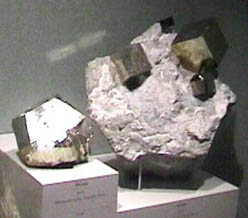 Pyrite is a signifant mineral source for sulfur. It is not used as an ore for iron because of the difficulty of separating the iron from the sulfur. |
The sample at right is pyrite forming with calcite. It is about 12 cm wide and is from Franklin, New Jersey. 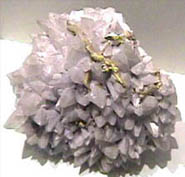 Pyrite forming with calcite. The sample is about 10 cm wide and is from Santa Eulala, Chihuahua, Mexico. |
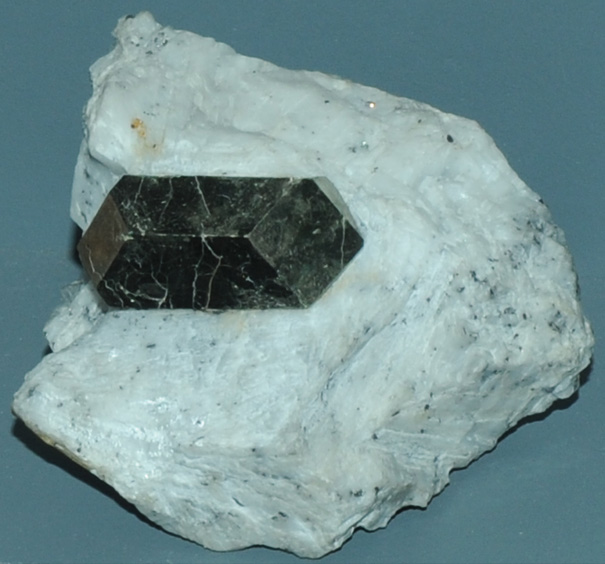 |
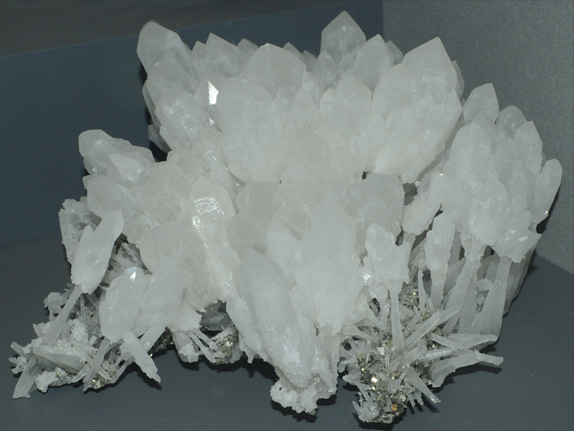 |
The sample at left is quartz with pyrite. The sample is about 18 cm across and is from Shangbao mine, Hunan Province, China. 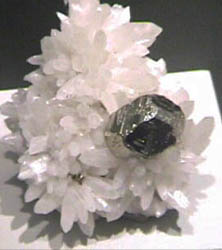 Pyrite forming with quartz. The sample is about 8 cm wide. |
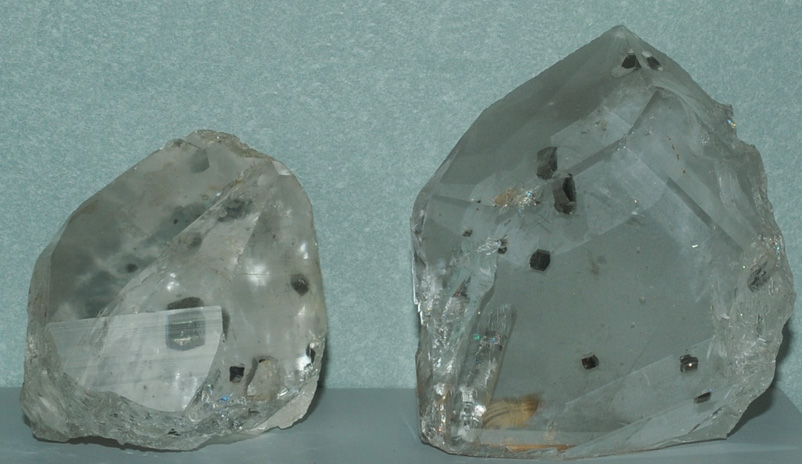
These are quartz crystals with pyrite inclusions. The left one is about 8 cm across and is from Minas Gerais, Brazil. The right crystal is shown at the same scale and is from Diamantina, Minas Gerais.
Mindat: Pyrite
| Minerals |
| HyperPhysics*****Geophysics | R Nave |